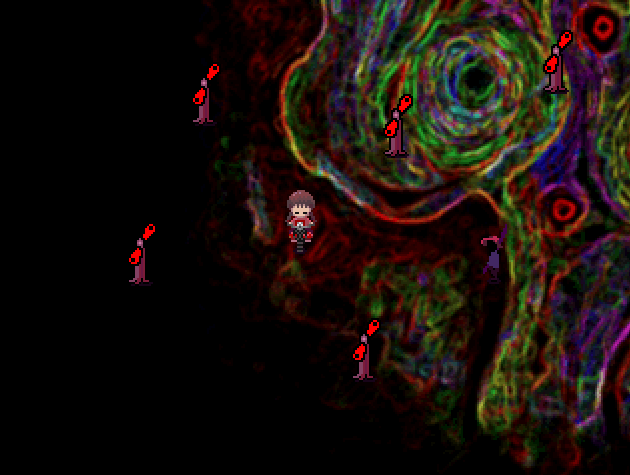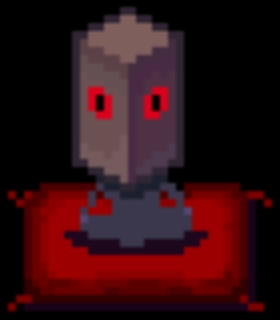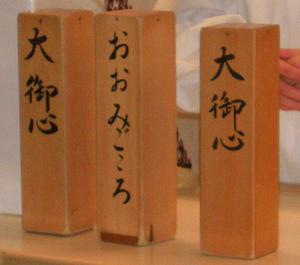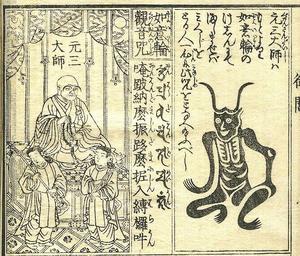>Mt.kiki No edit summary |
>Mt.kiki No edit summary |
||
| Line 68: | Line 68: | ||
[[File:CubeGuru(O-mikuji_Ryogen).jpg|thumb|CubeGuru(O-mikujiHead)]] | [[File:CubeGuru(O-mikuji_Ryogen).jpg|thumb|CubeGuru(O-mikujiHead)]] | ||
== | ==[http://yumenikki.wikia.com/wiki/List_of_characters#Cube_Guru Cube Guru]([http://en.wikipedia.org/wiki/O-mikuji O-mikuji])== | ||
O-mikuji <span sizcache08738901959736223="41 112 13" sizset="false" style="font-weight: normal;">(御御籤, 御神籤, or おみくじ<span class="t_nihongo_comma" style="display: none;">,</span> ''o-mikuji<sup class="reference" id="cite_ref-1" sizcache08738901959736223="41 112 13" sizset="false">[http://en.wikipedia.org/wiki/O-mikuji#cite_note-1 <u>[1</u>]]</sup>''<sup sizcache08738901959736223="41 112 14" sizset="false">[http://en.wikipedia.org/wiki/Help:Installing_Japanese_character_sets <span class="t_nihongo_icon" style="font: bold 80%/normal sans-serif; padding: 0px 0.1em; color: rgb(0, 0, 238); text-decoration: none; font-size-adjust: none; font-stretch: normal;"><u>?</u></span>]</sup>)</span> are random [http://en.wikipedia.org/wiki/Prophecy <u>fortunes</u>] written on strips of paper at [http://en.wikipedia.org/wiki/Shinto <u>Shinto</u>] shrines and [http://en.wikipedia.org/wiki/Buddhist <u>Buddhist</u>] temples in [http://en.wikipedia.org/wiki/Japan <u>Japan</u>]. Literally "sacred [http://en.wikipedia.org/wiki/Lot <u>lot</u>]", these are usually received by making a small offering (generally a five-yen coin as it is considered good luck) and randomly choosing one from a box, hoping for the resulting fortune to be good. (As of 2011<sup class="plainlinks noprint asof-tag update" sizcache08738901959736223="41 112 20" sizset="false" style="display: none;">[http://en.wikipedia.org/w/index.php?title=O-mikuji&action=edit <u>[update</u>]]</sup> coin-slot machines sometimes dispense o-mikuji.) | |||
: http://en.wikipedia.org/wiki/O-mikuji | |||
[[File:Omikuji_box.jpg|thumb|OmikujiBox]][[File:Ryogen.jpg|thumb|left|The founder of the "O-mikuji" looked at by the shrines and temples of the Japan whole country?]][http://en.wikipedia.org/wiki/Ry%C5%8Dgen Ryōgen] | [[File:Omikuji_box.jpg|thumb|OmikujiBox]][[File:Ryogen.jpg|thumb|left|The founder of the "O-mikuji" looked at by the shrines and temples of the Japan whole country?]][http://en.wikipedia.org/wiki/Ry%C5%8Dgen Ryōgen] | ||
| Line 82: | Line 79: | ||
"The founder of the "O-mikuji" looked at by the shrines and temples of the Japan whole country?" | "The founder of the "O-mikuji" looked at by the shrines and temples of the Japan whole country?" | ||
http://ja.wikipedia.org/wiki/%E8%89%AF%E6%BA%90 | : http://ja.wikipedia.org/wiki/%E8%89%AF%E6%BA%90 | ||
Revision as of 15:57, 8 February 2013
Windmill World(THE MONADOLOGY)
1. Matter and Thought
Most of Leibniz's arguments against materialism are directly aimed at the thesis that perception and consciousness can be given mechanical (i.e. physical) explanations. His position is that perception and consciousness cannot possibly be explained mechanically, and, hence, could not be physical processes. His most famous argument against the possibility of materialism is found in section 17 of theMonadology (1714):
- The thought experiment of the windmill by Leibniz
One is obliged to admit that perception and what depends upon it is inexplicable on mechanical principles, that is, by figures and motions. In imagining that there is a machine whose construction would enable it to think, to sense, and to have perception, one could conceive it enlarged while retaining the same proportions, so that one could enter into it, just like into a windmill. Supposing this, one should, when visiting within it, find only parts pushing one another, and never anything by which to explain a perception. Thus it is in the simple substance, and not in the composite or in the machine, that one must look for perception.
Mado(THE MONADOLOGY)
http://yumenikki.wikia.com/wiki/Madotsuki(name)#Mado.28THE_MONADOLOGY.29
Windmill World(Philosophical Zombie)
A philosophical zombie or p-zombie in the philosophy of mind and perception is a hypothetical being that is indistinguishable from a normal human being except in that it lacks conscious experience, qualia, or sentience.[1] When a zombie is poked with a sharp object, for example, it does not feel any pain though it behaves exactly as if it does feel pain (it may say "ouch" and recoil from the stimulus, or tell us that it is in intense pain).
Cube Guru(O-mikuji)
O-mikuji (御御籤, 御神籤, or おみくじ o-mikuji[1]?) are random fortunes written on strips of paper at Shinto shrines and Buddhist temples in Japan. Literally "sacred lot", these are usually received by making a small offering (generally a five-yen coin as it is considered good luck) and randomly choosing one from a box, hoping for the resulting fortune to be good. (As of 2011[update] coin-slot machines sometimes dispense o-mikuji.)
(良源?, 912 – January 31, 985 AD) was a chief abbot of Enryaku-Temple (Enryaku-ji) in the 10th century, and the founder of the tradition of warrior monks (sōhei).
"The founder of the "O-mikuji" looked at by the shrines and temples of the Japan whole country?"





